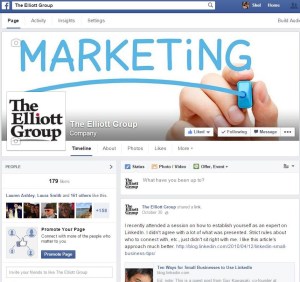 While the responsibility of owning your own small business can be overwhelming, it can also be very satisfying. It’s no wonder that small businesses continue to be the backbone of America’s economy. Almost 28 million small businesses employ 50% of the nation’s workforce and have created 65% of the country’s new jobs since 1995. Small business success doesn’t happen overnight — and it doesn’t come without a lot of work and worry. Small business owners are extremely skilled at providing their services or making their products, and usually, that’s what they like to spend their time on most. Dealing with other aspects of the business, such as accounting, HR or marketing can be either daunting or a drag. But, if you don’t send out invoices, you won’t get paid, and if you don’t do marketing, you won’t have anyone to invoice. Here are a few basic tips to get your small business marketing program underway.
While the responsibility of owning your own small business can be overwhelming, it can also be very satisfying. It’s no wonder that small businesses continue to be the backbone of America’s economy. Almost 28 million small businesses employ 50% of the nation’s workforce and have created 65% of the country’s new jobs since 1995. Small business success doesn’t happen overnight — and it doesn’t come without a lot of work and worry. Small business owners are extremely skilled at providing their services or making their products, and usually, that’s what they like to spend their time on most. Dealing with other aspects of the business, such as accounting, HR or marketing can be either daunting or a drag. But, if you don’t send out invoices, you won’t get paid, and if you don’t do marketing, you won’t have anyone to invoice. Here are a few basic tips to get your small business marketing program underway.
1. Set a marketing budget. This is critical, because without a somewhat firm marketing budget, you run the risk of either spending too much or too little. Spending too much can leave you extremely dissatisfied when the results don’t measure up. Spending too little can stunt efforts that show promise. Ideally, your marketing budget should be about 7-8% of your projected annual revenues; but up to 15% if you’re running a start-up.
2. Develop a marketing strategy. With your budget in hand, map out your goals and plan the strategic marketing efforts that will help you achieve those goals. Identify your primary and secondary markets and research how those markets shop or search for your products and services. Are they mainly using their phones to search for your business? Do they still read the newspaper every day? Do they use social media — and if so, which outlets?
3. Be part of the community. Your small business marketing plan should include ways to demonstrate your commitment to your community. Whether it’s through sponsorships, educational offerings, social media, donations or volunteer work, take an active interest in the people, businesses and happenings around you and your business will be rewarded. Remember, people do business with people they like.
4. Solve problems. A key component of your marketing strategy should be helping your customers solve problems — or get answers to their questions. Rather than using all of your marketing budget on hard-sell tactics, be sure to include some soft-sell techniques, like content marketing. E-newsletters, blog posts, webinars and instructional videos can all help you establish expertise, form relationships, get more referrals and increase search rankings — all while you’re providing a valuable, relevant service to your customers.
5. Be consistent. Part of your marketing plan should be a carefully timed schedule of all of your activities along with who is responsible for accomplishing each step along the way. Be sure to keep track of the plan’s progress. Lack of consistency and ill-timed promotions will kill the best of marketing plans.
BONUS: Don’t do everything yourself. As a small business owner, I can guarantee that you already have enough on your plate. Marketing is not an aspect of your business that you can afford to let slide, no matter how pressing your other priorities are. Delegate marketing tasks to other capable employees and hold them accountable for staying on track (and on budget). If you can’t delegate the implementation of your marketing plan to others in your organization, consider using an agency. Best wishes for small business success!



